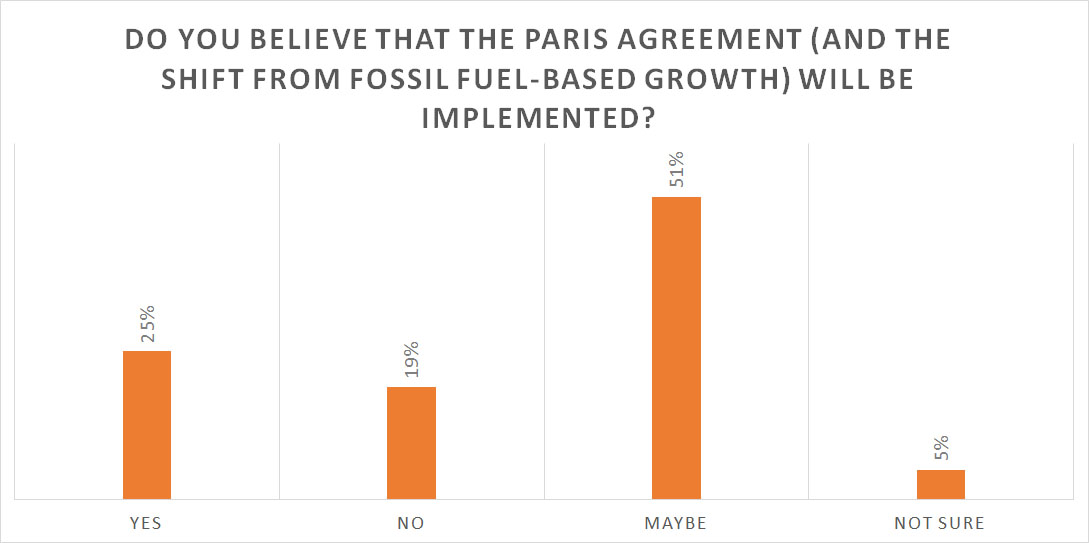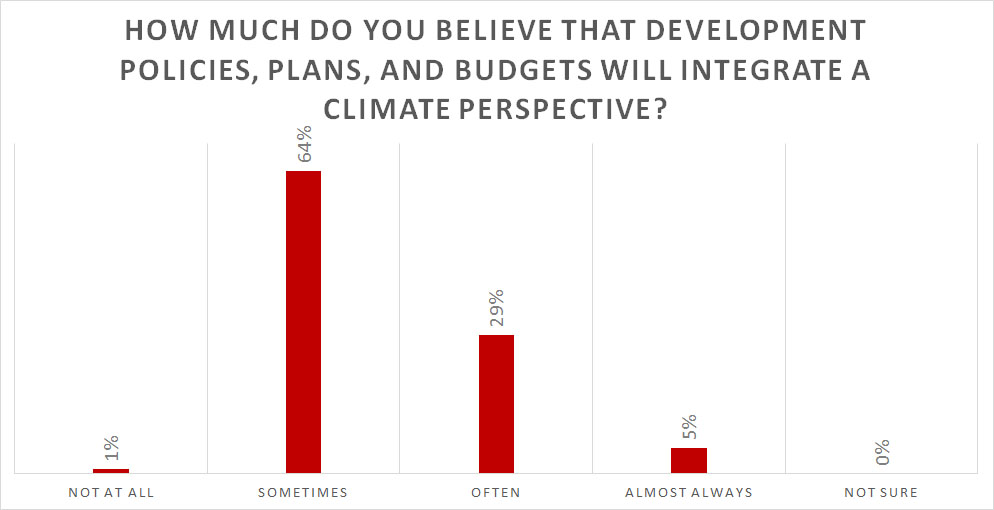Development experts recognise rising importance of climate change
Development experts recognise rising importance of climate change
At PwC’s annual International Development Conference in London, development experts agreed that last year’s Paris climate conference was a game changer – making it more likely that climate measures will be integrated in development plans. Heather Lynch reports.
At COP21 in Paris, CDKN launched its e-book Mainstreaming climate compatible development bringing together five years of learning from addressing the intersection of climate and development. At the same time most countries presented their INDCs or climate action plans most of which seek to integrate climate into their national economic development and poverty reduction plans. After the successful commitments of Paris, the challenge recognised by most development organisations and actors is how to accelerate the integration of climate change into their programmes and across their institutions. PwC held its annual International Development Conference in February, providing an opportunity to test how far this integration has gone.
Around 250 development practitioners, from DFID, the private and public sector, NGOs and academia came together in London to attend the International Development Conference. Opened by DFID Minister Desmond Swayne, the event included live polling on issues such as climate change. One result, about the likelihood of the Paris agreement being implemented, prompted a fairly ambiguous result with 56% saying maybe, and only a fraction more 'yes' responses than 'no'.
 One of the most encouraging results was that following the Paris Agreement, development practitioners have recognised the need to integrate a climate perspective into policies and plans. One audience poll taken during the conference indicated that the majority of voters remain optimistic about the results from Paris and believe climate issues will be integrated into development policies. Of the 112 who voted, only 1% thought that development policies would never integrate climate change, 64% believing sometimes and fairly substantial 34% thinking it would be often or almost always.
One of the most encouraging results was that following the Paris Agreement, development practitioners have recognised the need to integrate a climate perspective into policies and plans. One audience poll taken during the conference indicated that the majority of voters remain optimistic about the results from Paris and believe climate issues will be integrated into development policies. Of the 112 who voted, only 1% thought that development policies would never integrate climate change, 64% believing sometimes and fairly substantial 34% thinking it would be often or almost always.

Long journey to integrate climate action fully in development
It’s also the case that there is still a long journey on to integrate, build capacity and engage with more actors on the climate change agenda. That was the headline from a panel chaired by Sam Bickersteth, CDKN’s Chief Executive on the ‘implications of Paris for financing development’.
The Paris agreement is intended to increase the flow of additional public and private finance, establishing that $100 billion per annum of public and private finance is a floor, not a ceiling, for helping developing countries mitigate and adapt to climate change. What is needed for the required transformational change is trillions (around $6trn a year), not billions.
The Green Climate Fund and Global Environment Facility will play key roles in meeting the $100 billion per annum that countries have said must flow to less developed countries to assist their adaptation and mitigation efforts. Such climate finance will accelerate the shift of all resource flows towards climate compatible options. The action now is for policy makers to implement the policies needed to achieve their climate goals and for business to factor future climate regulation into their business models - to move to a low carbon, climate resilient future.
Each country should have a plan to mainstream climate change
Simon Maxwell, CDKN’s Executive Chair, said that we need to move from an architecture of having a complicated matrix of programmes to having one policy and plan that mainstreams climate change, emphasising that we all need to have climate change at the heart of what we do. The ability to design one policy needs to be central to development thinking and planning in all countries to bring climate change into the heart of development policy, he said.
CDKN’s new digital book, Mainstreaming climate compatible development, offers insights from five years of partnership work to design and deliver climate compatible development, where tackling climate change cannot be at the expense of reducing poverty and achieving human development.
The key challenge here – Simon adds - will be finding the finance and building capability in the right places to achieve the climate change agenda.
Andrea Ledward, Head of the Climate and Environment Department at DFID, discussed the importance of developing countries capacity and capability to help them integrate climate change into development. She commented: “CDKN has been critical in building capacity and capability in the negotiations context and understanding what should be in INDCs and turning these into plans and implementing them”.
